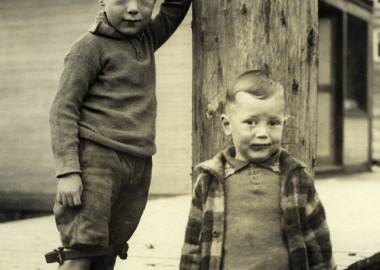
The following is a conversation with Kristy Ingram, People and Culture Leader at PayByPhone. It has been edited for clarity.
Maintaining company culture is everyone’s job, but it has to start somewhere, and usually that’s with the human resources department. Kristy Ingram is the People and Culture Leader at PayByPhone, the Vancouver-based mobile parking app company that has spread through Canada and the US, and now to Australia and New Zealand, the UK and France. In this interview, Kristy talks about why she’s dropped HR from her title (kind of), what company culture looks like to her, and how the PayByPhone team uses storytelling to improve it.
ECHO Storytelling Agency: Your title is People and Culture Leader. Do you not call yourself a human resources professional anymore?
Kristy Ingram: Technically I’m both, but I’m more concerned with humans and less concerned about resources. On paper, I am the director of human resources, and the department is still called HR, although in modern practice, we don’t like referring to people as resources – because we’re more than that! Human resources has traditionally been seen as the “police” of a company, the department that upholds the rules and tells employees what they can’t do. But when you hear “People and Culture,” you think of what people can do and how they interact with each other — that’s more our focus these days.
ECHO: I understand the people side of the title, but what does the culture mean to you?
KI: I really believe that, even though they’re equally important, there is a difference between culture and values. I like to think of it this way: core values are what a company says it does (“the talk”), and company culture is the actual employee experience at that company (“the walk”). Culture is really tough to define in only one way, because it’s shared amongst everyone in a company. Your definition of the company’s culture could be completely different than the CEO’s, but both experiences are legitimate.
ECHO: What does a strong company culture look like to you?
KI: Culture is essentially a shared experience at an organization, and everyone is contributing. There needs to be clarity on what each person’s roles and responsibilities are and how that connects back to the company’s larger vision so people feel like they are contributing to the greater good. They not only have to check off all of the items on their individual job descriptions every day, but they also should be aware of the impact their tasks have on the organization as a whole. If someone doesn’t feel like they’re contributing to the organization’s story, there’s no connection there, and no motivation or satisfaction.
This shared purpose is the culture. You have a reason that you’re there, for what you’re doing every day, and you also know why you’re doing it. So, talking the talk and walking the walk. You can’t control how individual people behave, but there’s an essential element of sharing so people know what to expect from each other and can trust each other.
ECHO: How do you use storytelling in your role at PayByPhone?
KI: My team uses storytelling a lot, particularly around talent acquisition and onboarding. Our company has grown significantly over the last while (more than doubled in size!), so we have a big story to tell potential candidates about our recent acquisition by Volkswagen Financial Services and our goals for the future. We coach all of our hiring managers to be fully versed in these things, and we make sure they can tell the best stories about working at PayByPhone. Once someone decides they do want to work with us, we want to ensure that they understand what they’re signing up for.
For instance, our new CEO just came on board last year, and he made a really good use of story by creating an exciting narrative about some ambitious goals we have for PayByPhone called Mission Zero. With this story, we got all of our managers on board and passionate about it, and that central narrative made it really easy for them take the Mission Zero story to not only the rest of the organization but to potential new hires, and hopefully connect everyone to our larger values and goals.
ECHO: Talk about a time when a story made something click for you.
KI: I used to be a roller derby coach, and in my first year, my team was in last place in the league for the third year running. We created our own story about how to work together one bout at a time to win the championship, and that’s something that I’m still really proud of to this day. I built our strategy around deep data and stats, but that was all behind the scenes; our outward narrative of working our way up from the bottom to win the championship is the one that everyone remembers. I wouldn’t say that PayByPhone is an underdog per se, but a story like that is the perfect way to help people rally around a cause and cheer for the same team, whether it’s a sports team or a company.
ECHO: What’s the best part of your job?
KI: People! Of course they can be the most challenging part too because we are working with so many personalities and opinions, but if we try to lump everyone together or try to get everyone to act the same way just because we’re growing quickly, that’s really boring. Organizations are successful because of the collective, but the individual stories matter the most. They’re what makes good companies great.
For further reading about how storytelling can improve an organization’s culture:
How Storytelling Can Make New Hires Happy
Tell Better Internal Business Stories
Does your company need storytelling help? Our experts can help you make a big impact on your culture through story. Get in touch today by email (hello@echostories.com) or give us a call at 1.877.777.ECHO (3246). We would love to hear from you!





